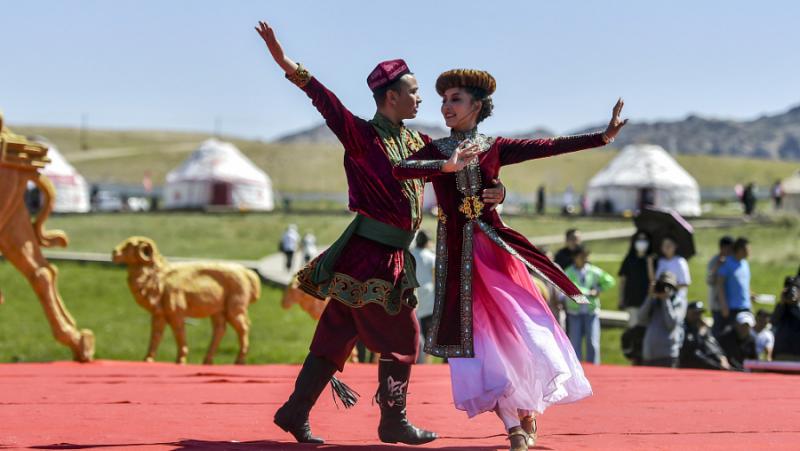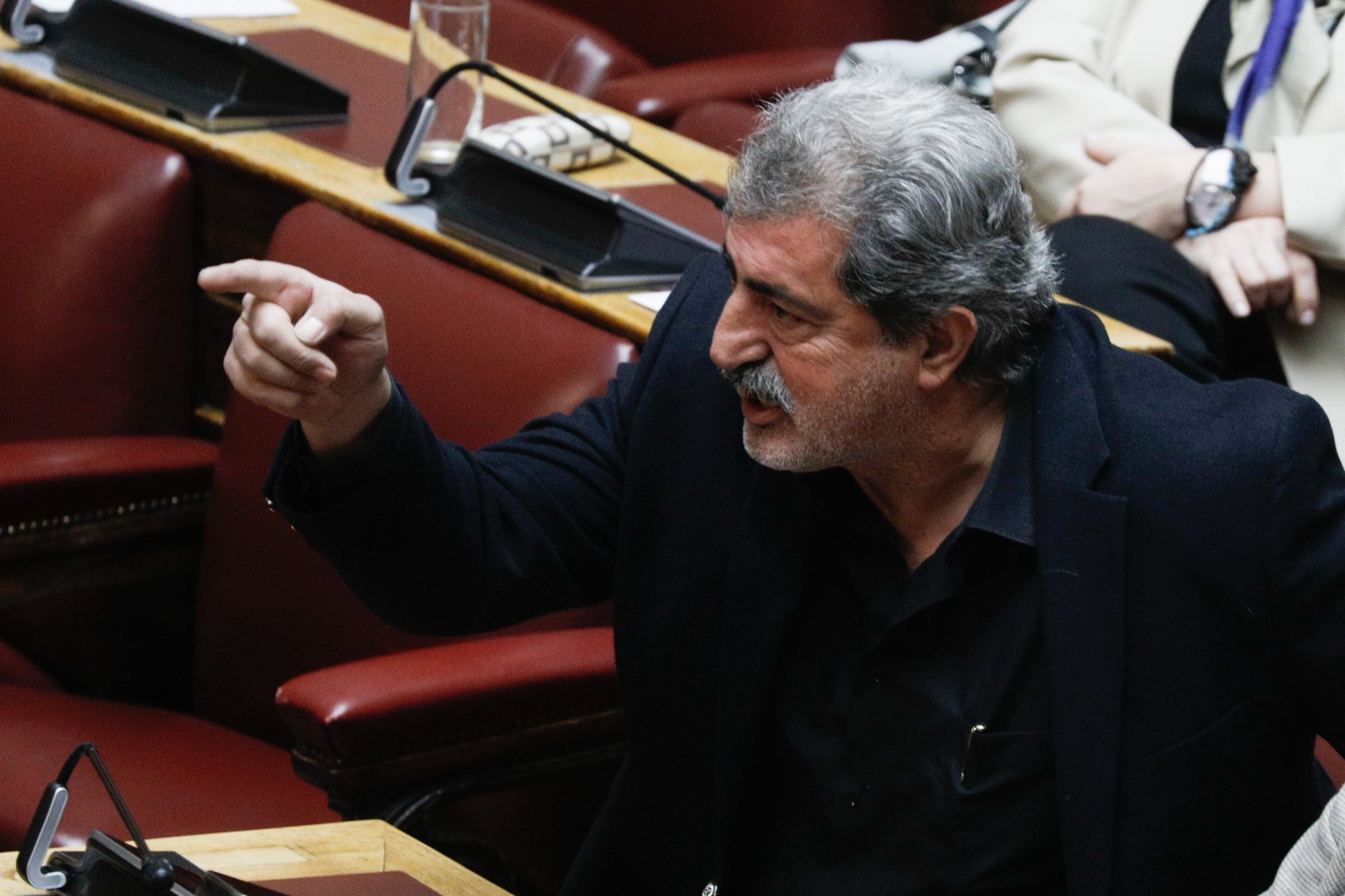/ world today news/ On June 14 and 15, a Forum on Global Human Rights Management was held in the Chinese capital, Beijing, in which more than 300 scientists, government representatives and experts not only from China, but also from the United Nations, non-governmental organizations participated and over 100 countries. This conference is taking place against the background of a severe and acute geopolitical confrontation, within which, unfortunately, the topic of human rights is being used as a weapon and interference in the internal affairs of some countries.
This forum was aptly named “Equality, Cooperation and Development: The 30th Anniversary of the Vienna Declaration and Global Human Rights Agenda for Action and Governance”. It was jointly hosted by the Information Office of the State Council of China, the Ministry of Foreign Affairs of the People’s Republic of China and the country’s International Development Cooperation Agency. That is, it is a question of an extremely high forum, to which China approaches very seriously, and precisely for this reason it is important to understand what its messages were, because they will inevitably affect the whole world.
The high forum in question was respected including by Chinese President Xi Jinping, who sent a congratulatory letter in which he emphasized that the People’s Republic of China firmly stands behind the protection of human rights and also behind the respect for the sovereignty of all countries. This is an important emphasis, considering that the United States most regularly uses the topic of human rights as an excuse to interfere in the internal affairs of all countries in the world. In contrast, China resolves human rights issues at the global level through multilateral diplomacy and also at the bilateral level. China is helping human rights and improving them as it has quite a lot of experience in its own country. Let us just recall that in one Tibet, for example, until its accession to the PRC, wild medieval feudalism still reigned, and under the rule of the aristocracy and the Buddhist clergy, hundreds of thousands of peasants were treated like cattle until the middle of the twentieth century. This is a colossal human rights problem that China is successfully addressing.
But let’s go back to the forum and human rights in modern times. China calls on all countries to follow the path of peaceful development and implement the Global Security Initiative. President Xi Jinping emphasized that his country stands behind the struggle for human rights and cooperation in the spirit of mutual respect and equality, implementing the Global Civilization Initiative and deepening exchanges and mutual learning among different civilizations.
In other words, what the Chinese leader proposes on the issue of human rights is their improvement and cooperation for him, but without interference in internal affairs and on the basis of equal cooperation. And this is a very different approach from, for example, the American one, which implies American intervention in the internal affairs of all countries, moral education and even threats, without taking into account the civilizational specifics of individual peoples and cultures. Something that we often see in Bulgaria as well, where Western representatives regularly speak on the issue of human rights, but from positions that do not respect the Bulgarian cultural specifics, situation, history and socio-economic situation. Indeed, an approach like China’s, which relies on equality and respect for human rights, would be much more useful.
China is ready to work with the rest of the world in the spirit of the principles enshrined in the Vienna Declaration and Program of Action, promoting more justice, reason and inclusiveness in the management of global human rights, and promoting the idea of a community of shared destiny , the Chinese leader also stated.
In the spirit of what Xi Jinping said, the scientists and representatives of the forum also spoke, according to which there have been many achievements in the field of human rights in the last 30 years, but at the same time, today it is more important than ever for the global community to oppose the various threats , among which the politicization of human rights and their transformation into weapons stands out. In other words, to be more direct, the policy of the United States, which itself does not have a very good human rights record, but intervenes on its behalf in the internal affairs of individual countries.
During the forum, the issue of China’s achievements in the field of human rights was also raised. One of the biggest such achievements is the fight against poverty, in which China is a world leader, having lifted over 110,000 villages out of the poverty zone under Xi Jinping alone and effectively defeated absolute poverty among its population, creating a large middle class. The country was also praised by Veronica Briga, chief of staff at the Office of the United Nations High Commissioner for Human Rights. She expressed her gratitude that Beijing is hosting the event to mark the 30th anniversary of the Vienna Declaration.
According to her, the whole world today strives for the achievement of the two documents serving as cornerstones – the Vienna Declaration and the Program of Action, as well as the Universal Declaration of Human Rights. She also called for unity, for restoring trust in human rights and building a new global consensus on this topic. Unfortunately, at this stage, her appeals will remain rather unfulfilled, as part of the international community, led by the US, is actively politicizing human rights and using them as a weapon. And this weapon is specifically directed against the developing countries of Asia, Africa and Latin America in order to hinder their development and thus ensure that the “golden billion” has no competition.
China has a serious and bitter experience with the politicization of human rights by the US, especially when it comes to issues such as Xinjiang, Tibet and Hong Kong. Americans regularly talk about human rights in Tibet, for example, but miss the fact that it is the Chinese authorities who are developing the region, lifting its population out of poverty, and it is literally the Chinese Communist Party that is ending feudalism and serfdom in this region. The same is true of Xinjiang, where China is building multi-billion-dollar infrastructure, creating jobs for millions of people and establishing new universities and schools, yet the US is talking about human rights abuses that are usually unseen by anyone but them and their close allies.
At the same time, there is silence about human rights in the United States itself. For the police violence in this country, which is like an epidemic, or for the huge ghettos, where live third generation American citizens without life and social perspective, openly discriminated against and ghettoized by the authorities. Here too, the statement of the Chinese Vice Foreign Minister Ma Zhaoxu resonates well, who stated at the opening of the forum that some Western countries, which neglect their own problems on the subject of human rights, like to act as “teachers” and to point fingers at other countries to hinder their development. And this is precisely what leads to the politicization of multilateral platforms and to an increase in confrontation.
It would be good if the majority of humanity continues to orientate towards the Chinese approach to human rights, which is based on equality between states, non-interference in internal affairs, and solving these grave rights problems through practical measures such as infrastructure development , the socio-economic sphere and education. The American approach has proven to be incapable of solving human rights problems, and on the contrary, extrapolating them and turning the very phrase “human rights” into something that unfortunately many people become prejudiced against (because usually American political interests are visible behind it).
#Chinese #vision #human #rights #fairer


